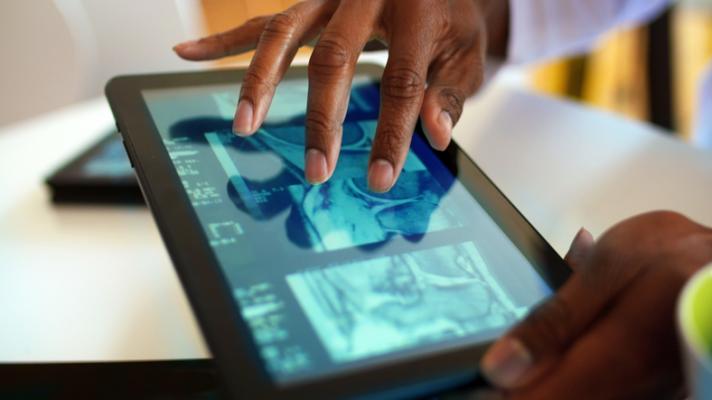
Getty Images
April 21, 2021 — The American College of Radiology (ACR) has brought together the full power of its world-class informatics and clinical research resources to launch the innovative ACR National Clinical Imaging Research Registry (ANCIRR). The six current and eight planned ANCIRR registries can collect and curate images and diverse clinical data from multiple practice settings to produce large data sets that enable researchers to address complex scientific questions and produce results applicable across various care settings, geographic locations and multiple populations.
“The ACR National Clinical Imaging Research Registry™ (ANCIRR) is the future of radiology research registries,” said Howard B. Fleishon, M.D., MMM, FACR. “The ANCIRR can democratize healthcare research by enabling radiologists who have never taken part in research studies to make vital contributions to patient care advancement.”
The newest of the six current ANCIRR registries — the COVID-19 Imaging Research Registry (CIRR) — is now live. Wake Forest Baptist Health is the first of many sites to contribute case images and anonymized patient health information to fuel more robust and impactful research than image collection alone.
The CIRR is a primary data collection pathway for the National Institute of Biomedical Imaging and Bioengineering (NIBIB)-funded Medical Imaging and Data Resource Center (MIDRC), which may become the largest COVID-19 medical imaging archive in the world. The CIRR also provides COVID-19 images to the Society of Critical Care Medicine VIRUS COVID-19 Registry and the National Heart, Lung, and Blood Institute PETAL Clinical Trials Network.
“The ACR has a unique ability to create curated, integrated diagnostic data sets of multi-institutional data,” said Pamela K. Woodard, M.D., FACR, ACR Research Commission Chair. “This ability to leverage electronic health records can fulfill the promise of digital data, aid health equity efforts and lead to more targeted patient care.”
The ACR Center for Research and Innovation and ACR Informatics teams are spearheading this innovation. Observational studies derived from registries are an increasingly vital part of research and development along with randomized controlled trials and retrospective studies. Federal agencies and technology creators require rich data sources — such as those provided by the ANCIRR — to efficiently move medical advances forward.
“The ANCIRR provides seamless data and image collection through the ACR TRIAD and ACR Connect suite of tools to support clinical research, quality improvement initiatives, artificial intelligence (AI) development and evaluation, regulatory submissions, and other new technologies,” said ACR Informatics Commission Chair Christoph Wald, MD, PhD, MBA, FACR.
The ANCIRR differs from the National Radiology Data Registry (NRDR), which receives data from facilities to enable practice quality improvement through site feedback and benchmarking against peers.
For more information: acr.org/researchregistry


 April 14, 2025
April 14, 2025 








